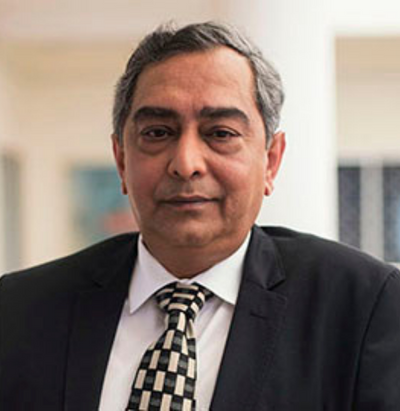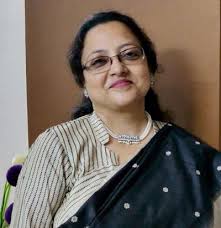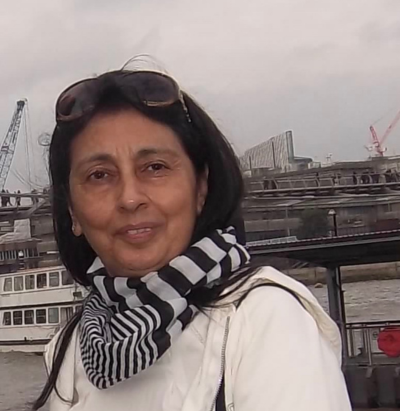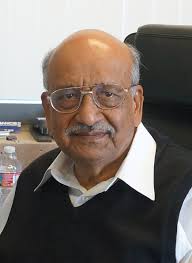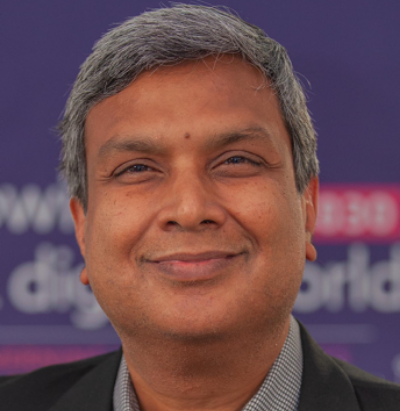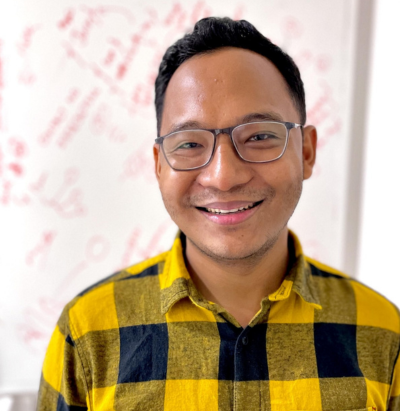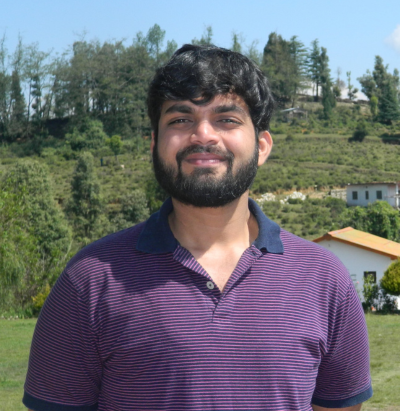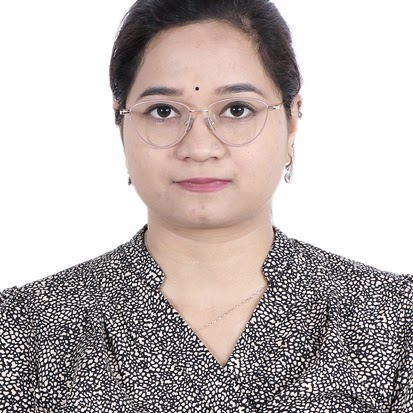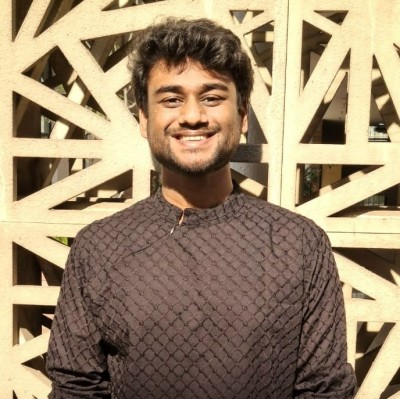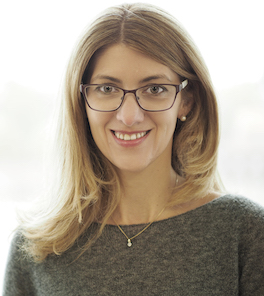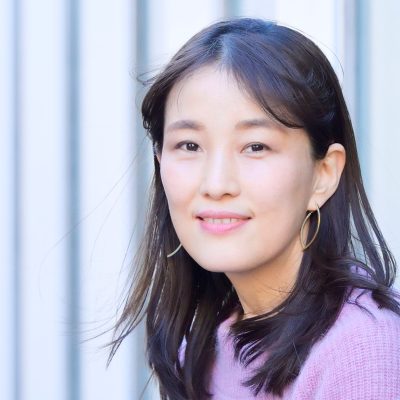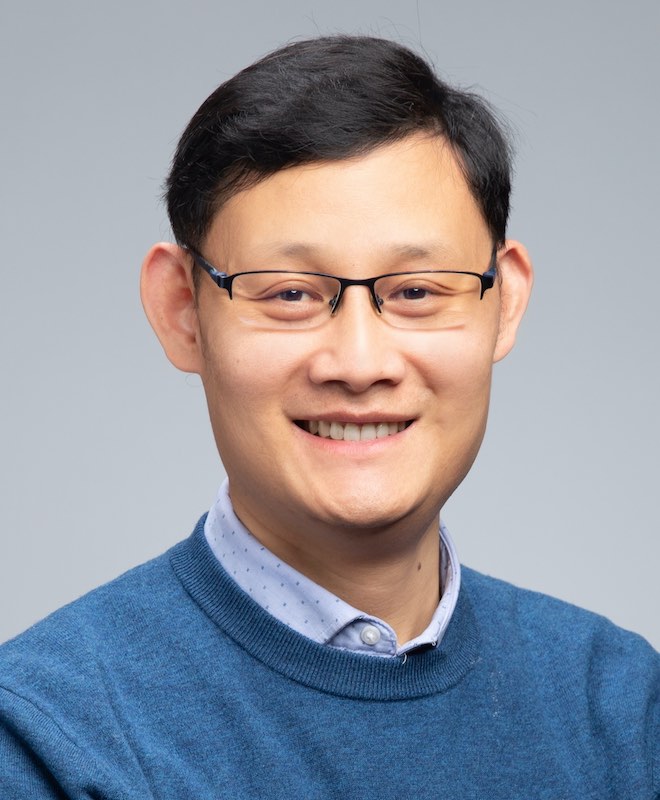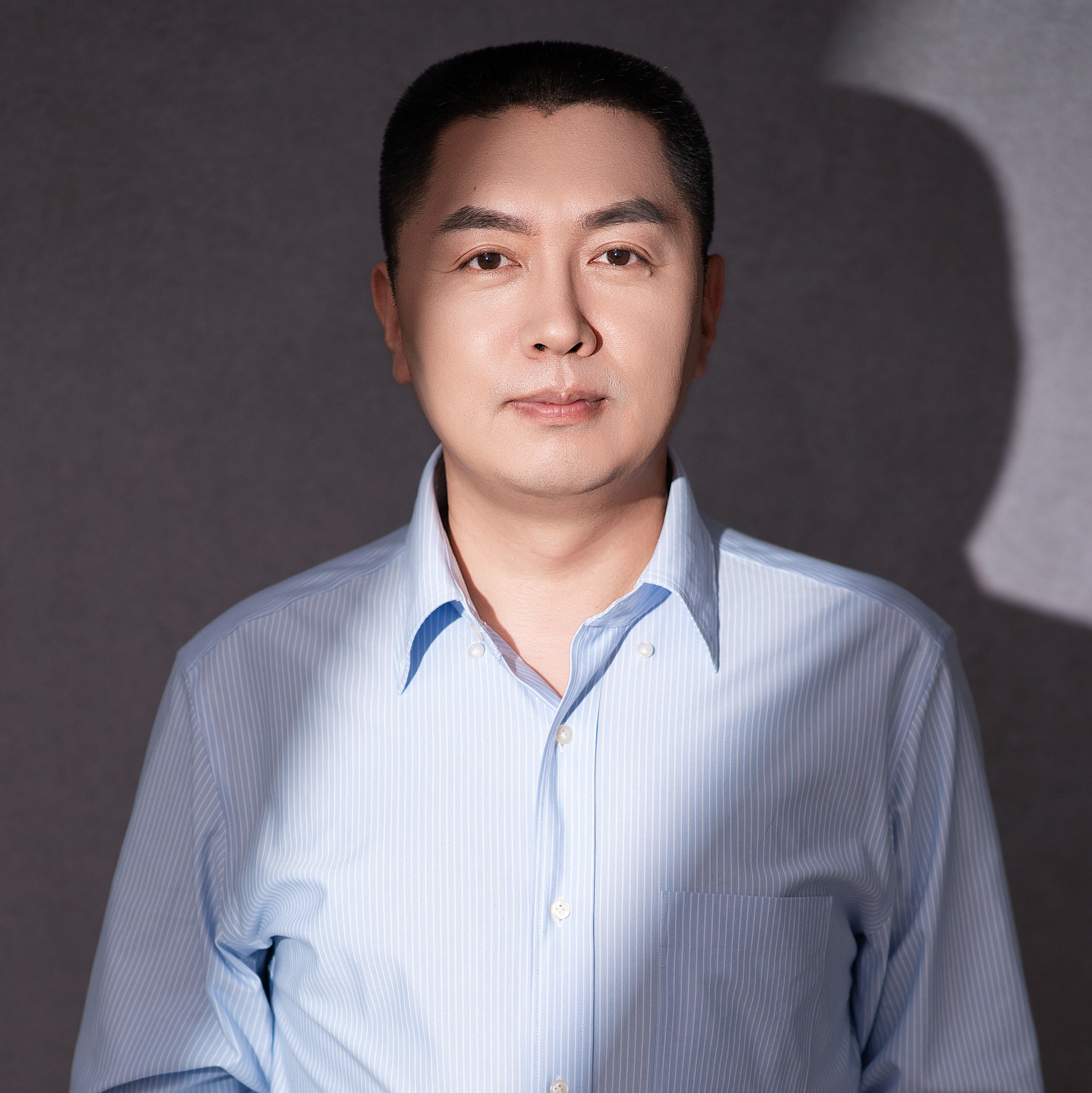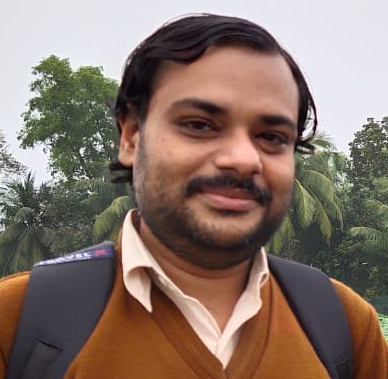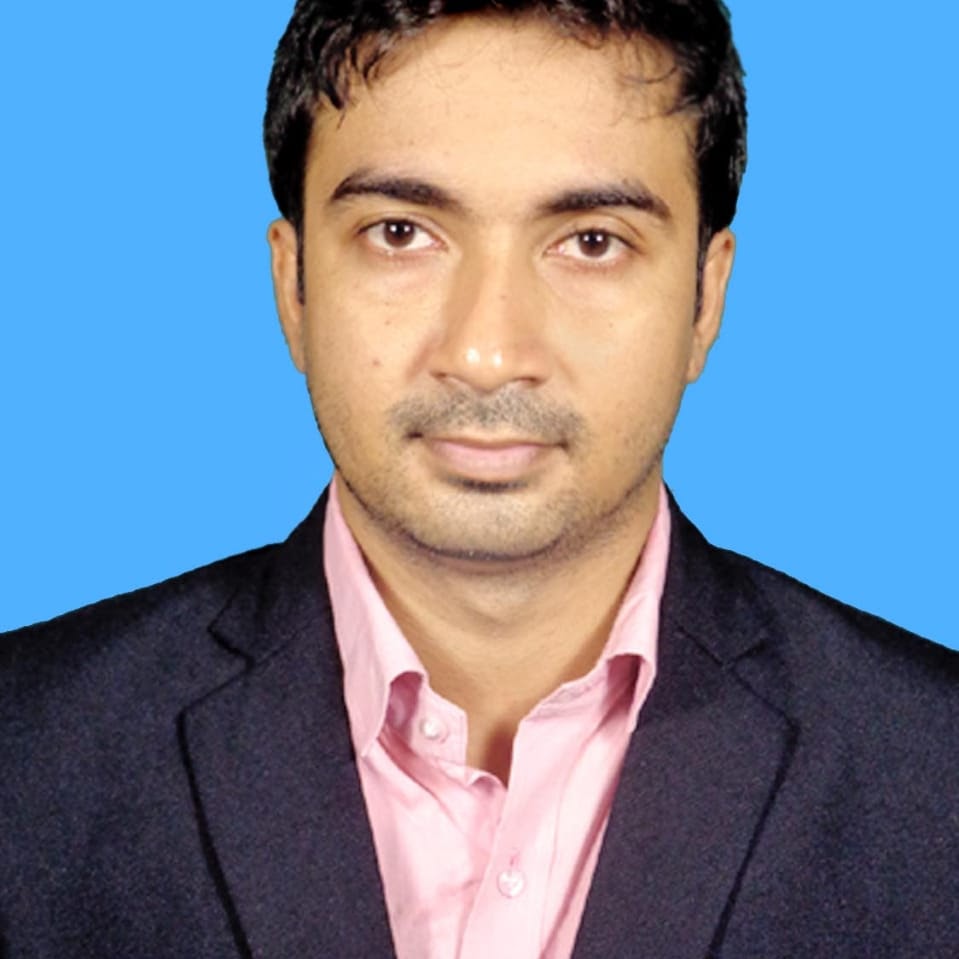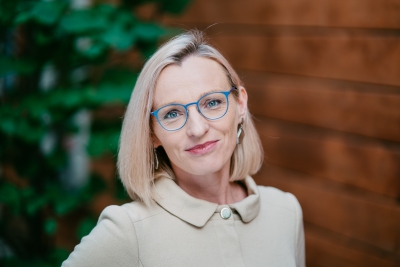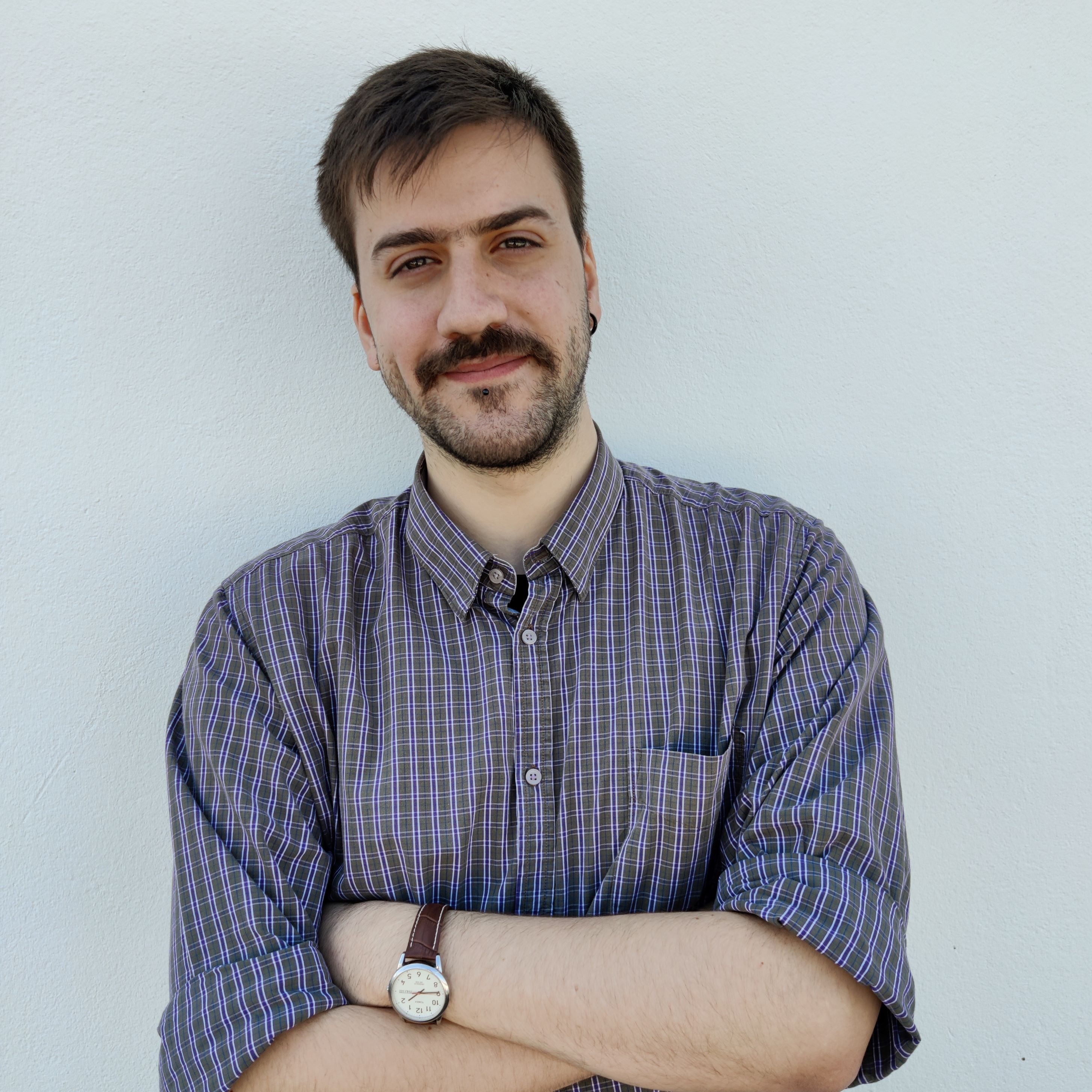Team
The interdisciplinary team of FoodComputing@Ashoka consists of AI researchers, computer scientists, digital health experts, software developers, knowledge engineers, data scientists, food computing collaborators, and last but not the least, eager students:
Principal Investigators
Dr. Partha Pratim Das
About
Dr. Partha Pratim Das is a Professor at the Department of Computer Science and the Founding Director of the Center of Data Science and Analytics at Ashoka University. He has over 24 years’ experience in teaching and research at IIT Kharagpur, and about 13 years’ experience in Software Industry. He has worked extensively in Digital Geometry, Smart Software Engineering, and Digital Heritage for academic research; and EDA frontend automation and T & M tools in video technology as industrial products. His current interests are Food, Nutrition and Digital Health.
In Ashoka, Partha anchors the project on “Multimodal Food Computing” in collaboration with Trivedi School of Biosciences at Ashoka and Institute of FutureHealth @ UCI. With the team he has been developing food ontology and knowledge graphs for Indian food and has published in the JOWO Workshop at IFOW 2024 and in the NLP4DH 2024. Recently, Partha has delivered an invited lecture at MaDiMA 2024 at ICPR 2024 on Intelligent Food Systems and also took part in the Multimodal AI Agents RoundTable at ACM MM 2024 as an invitee. He is a member of SIGMM.
Partha has guided over a dozen doctoral theses and has published over 100 technical papers.
Dr. Lipika Dey
About
Dr. Lipika Dey is a Professor of Computer Science at Ashoka University. Prior to joining Ashoka, she was a Chief Scientist at Tata Consultancy Services (TCS), Research, where she was heading research in the themes of Economic and Financial Intelligence and Real Time Context Aware Enterprises. Her research interests are in the areas of Artificial Intelligence, Natural Language Processing and Multi-modal Data Analytics. She has keen interest in the fields of healthcare and sustainability analytics. Her focus has been on building systems that can seamlessly integrate heterogeneous information from a diverse set of sources to extract predictive and prescriptive insights. She has several patents and publications to her credit. Lipika was earlier a member of faculty at the Department of Mathematics, Indian Institute of Technology, Delhi. Lipika has been elected to the Fellowship of Indian National Academy of Engineering in 2021.
She was also awarded the Distinguished Scientist award by TCS in 2012. She has served as Program Committee member for several conferences like AAAI, KDD etc. Lipika has a PhD in Computer Science and Engineering from IIT Kharagpur, where she had also done her graduation and post-graduation in Mathematics and Computer Science. Lipika has been an active member of Association for Computing Machinery (ACM) for more than a decade. Beside serving the committee for ACM(W) in India, she also mentors young researchers and faculty in the area of Computer Science, under the aegis of ACM India. She is currently serving as an Eminent Speaker.
Dr. Geeta Trilok-Kumar
About
Dr. Geeta Trilok-Kumar is currently a Wellcome Trust Senior Fellow in Public health, a Fellow of Delhi School of Public health, Institute of Eminence, Delhi University and a senior faculty fellow at Ashoka University where she is actively involved with Trivedi School of BioSciences and Koita Centre for Digital Health. Geeta was the former Director of Institute of Home Economics, and the Head of the Department of Home Science at University of Delhi.
Advisors and Mentors
Dr. Ramesh Jain
About
Dr. Ramesh Jain is a Professor Emeritus and the founding Director of the Institute for Future Health at University of California, Irvine (US) and a Distinguished Associated Faculty at Ashoka University. He is a visionary technologist and entrepreneur at the forefront of digital health innovation. With a distinguished career spanning five decades, Ramesh has made groundbreaking contributions to Computer Vision, Artificial Intelligence, Multimedia Computing, Experiential Computing, and Digital Health. He is currently leading the development of the Personal Health Navigator, now being standardized globally by ISO. While at the University of Michigan, Ann Arbor, he founded and directed the AI Laboratory in 1987; and at the University of California, San Diego, he founded the Visual Computing lab in 1995. He was also the founding Editor-in-Chief of IEEE MultiMedia magazine and Machine Vision and Applications journal and has co-founded VicaraHealth and social entrepreneurship companies in AI for Health such as Personicle.org and HealthUnity.org.
Ramesh is an ACM, IEEE, AAAS, IAPR, AAAI, and SPIE Fellow and his team’s research has been recognized in the ACM SIGMM Technical Achievement Award 2010, IEEE TCMC Impact award and many other similar awards. In 2023, Ramesh received the ACM Distinguished Service Award for establishing the ACM Special Interest Group on Multimedia Systems (SIGMM), and for outstanding leadership and sustained services to ACM and the computing community for the past four decades. His current research is in building computing and data-driven Navigational approaches for Future Health.
Dr. Anurag Agrawal
About
Dr. Anurag Agrawal is a physician-scientist with experience in conducting bench-based as well as field-based research. Dean of the Trivedi school of Biosciences, and the former head of a national lab (Institute of Genomics and Integrative Biology), he has experience with highly interdisciplinary teams and has also been highly productive as a researcher (h-index 70, i10 index-153). His larger interests in digital transformation of health, where he has co-chaired the Lancet-Financial Times commission for digital health future, complement the efforts for data empowerment of food knowledge.
Research and Development
Dr. Rintu Kutum
About
Dr. Rintu Kutum is a Faculty Fellow/Data Scientist at the Department of Computer Science, Ashoka University. He was the project coordinator (postdoctoral fellow) of “AI/ML for Health- care” theme under the “City Knowledge Innovation Cluster – Delhi Research Implementation and Innovation” project at the Center for Excellence in Healthcare, IIIT-Delhi. His Ph.D. was in Machine Learning, Genomics, and Gene regulatory Networks from CSIR-Institute of Genomics & Integrative Biology, New Delhi. Rintu has almost 10 years of experience in applied biological ontology and has been working in biomedical ontologies to improve interoperability human health. At Ashoka, he leads the Augmented Health Systems group, where the focus of the group is to design, build and deploy augmented health systems to improve patient outcomes through digital technologies and collective science.
Dr. Mayank Garg
About
Dr. Mayank Garg is a Simons Early Career Fellow at Ashoka University, pursuing quantitative health research to explore the heterogeneity of ICU disorders like Sepsis and ARDS. He is a physician scientist who completed his medical graduation and clinical training from IPGME&R and SSKM Hospital, Kolkata, India. He gained brief experience in intensive care before switching to experimental research at CSIR-Institute of Genomics and Integrative Biology (CSIR-IGIB), Delhi, India. He pursued a PhD here, working with murine models of Acute Lung Injury, dissecting the molecular mechanisms involved in inflammation.
Realizing the importance of context in biomedical research, Mayank aims to derive mechanisms to leverage data science in a clinically relevant manner, and to validate them using contextual application of experimental models. He believes in the potential of digital transformation in personal empowerment, for improving health-care, sick-care, and clinical research. He is collaborating on a project to develop a digital framework to assist data collection and aid analysis for personalized lifestyle medicine. He plans to leverage the power of LLMs integrated with such digital frameworks for healthcare and healthcare research. He strongly advocates for collaborative growth and strict ethical standards as the foundation for advancing science.
Saransh Gupta
About
Saransh Gupta is a senior research engineer in the ‘Multimodal Food Computing’ group at Mphasis AI & Applied Tech Lab at Ashoka University. He studied Computer Science and Finance at BITS Pilani and worked as a software engineer at Symantec Corporation for 2.5 years in the STAR (Security Technology and Response) team where his responsibilities included software R&D, optimizing the algorithmic flows, mitigating risks, and improving the efficacy of functional security products. His newfound research interests at the intersection of language, cognition, computation and society led him to pursue the Young India Fellowship and complete an interdisciplinary masters in Computer Science and Psychology, both at Ashoka University. His current work pertains to multimodal AI, system design, data mining, large-language models, natural language processing, and ontology design for building a knowledge graph for Indian food.
Collaborators
Dr. Stavroula-Georgia Mougiakakou
(Switzerland)
About
Dr. Stavroula-Georgia Mougiakakou is an Associate Professor with a Ph.D. in Electrical and Computer Engineering from the National Technical University of Athens, Greece. Since 2008, she has been with the Faculty of Medicine at the University of Bern, leading the AI in Health and Nutrition Laboratory at the ARTORG Center for Biomedical Engineering Research. Her research focuses on developing and clinically validating AI and machine learning approaches for analysing multimodal health data. Her work supports prevention, personalized diagnosis, prognosis, and treatment of acute and chronic diseases, including obesity, diabetes, and lung diseases. She has also advanced AI-driven pipelines for translating food data into nutrient content to improve personalized dietary assessment. She serves as the main organizer of the International Workshop on Multimedia Assisted Dietary Management (MADiMa). Stavroula is a member of the Executive Team of the Center for Artificial Intelligence in Medicine (CAIM) and Co-Director of the MSc program in AI in Medicine at the University of Bern. She is an Honorary Associate Professor at the University of Nicosia, Cyprus. She has supervised over 19 PhD students, 8 postdoctoral researchers, and several MS students. Her lab’s work has led to numerous publications, patents, and successful technology transfers, with participation in high-profile research projects at national, European, and international levels.
Dr. Yoko Yamakata
(Japan)
About
Dr. Yoko Yamakata received a Ph.D. in Informatics from Kyoto University in 2007. From 2010 to 2016, she served as a Lecturer and later an Associate Professor at Kyoto University. In 2015, she became a JSPS Research Fellow and spent time as a Visiting Researcher at the University of Sussex in the UK, accompanied by two children. In 2019, she joined the University of Tokyo as an Associate Professor in the Graduate School of Information Science and Technology, and in 2024, became a Professor at the Information Technology Center of the University of Tokyo. Her research interests focus on multimedia information processing.
Dr. Shuqiang Jiang
(China)
About
Dr. Shuqiang Jiang is a professor with the Institute of Computing Technology (ICT), Chinese Academy of Sciences (CAS) and a professor at the University of CAS. He is also with the Key Laboratory of Intelligent Information Processing, CAS. His research interests include multimedia analysis and multimodal intelligence. He leads the food computing research group in ICT, CAS. He has authored or coauthored more than 200 papers on the related research topics. He was supported by the National Science Fund for Distinguished Young Scholars in 2021. He won the CAS International Cooperation Award for Young Scientists, the CCF Award of Science and Technology, Wu Wenjun Natural Science Award for Artificial Intelligence, CSIG Natural Science Award, and Beijing Science and Technology Progress Award. He is the Associate Editor of ACM ToMM, IEEE TMM, vice Chair of IEEE CASS Beijing Chapter, vice Chair of ACM SIGMM China chapter. He has served as an organization member of more than 20 academic conferences, including the general chair of ICIMCS 2015, program chair of ICIMCS2010, PCM2017, ACM Multimedia Asia2019.
Dr. Weiqing Min
(China)
About
Dr. Weiqing Min Jiang is an associate professor at the Key Laboratory of Intelligent Information Processing (IIP), Institute of Computing Technology (ICT), Chinese Academy of Sciences (CAS). He received the Ph.D. degree from the National Laboratory of Pattern Recognition, Institute of Automation, Chinese Academy of Sciences under the supervision of Prof. Changsheng Xu. His research is in the areas of multimedia content analysis and AI for food science. Dr. Min has authored and co-authored more than 70 peer-referenced papers in relevant journals and conferences, including IEEE Trans. on Pattern Analysis and Machine Intelligence, Patterns(Cell Press), ACM Computing Surveys, Trends in Food Science & Technology, IEEE Trans. on Image Processing, Food Chemistry, ACM MM, AAAI, IJCAI, etc. He has served as the Associate Editor of IEEE TMM and ACM MM2021/ICME 2022-2025 Area Chair. He is also the reviewer of many prestigious international journals including Nature Food, Patterns (Cell Press), Advanced Science, IEEE TIP/TMM, etc. He is a distinguished member of CCF, and senior member of IEEE, CSIG and Chinese Institute of Food Science and Technology. He is the recipient of 2024 Beijing Outstanding Youth Fund, 2023 CSIG Young Scientists Award, Second Prize of 2020 Beijing Science and Technology Progress Award, 2020 ACM CHINA SIGMM RISING STAR AWARD. He is also the recipient of 2016 ACM TOMM Nicolas D. Georganas Best Paper Award and 2017 IEEE Multimedia Magazine Best Paper Award.
Dr. Marianna Obrist
(UK)
About
Dr. Marianna Obrist is a Professor of Multisensory Interfaces at UCL and Deputy Director of Digital Health at the UCL Institute of Healthcare Engineering. Her pioneering research integrates touch, taste, and smell in human-computer interaction, with applications ranging from VR to healthcare. She co-founded and Chief Scientific Officer of OWidgets LtD (OW Smell Made Digital), a university spin-out developing innovative digital scent technology. Her recent projects include the EPSRC/NIHR Smell Care project, which extends previous ERC PoC award research into digital smell training solutions. Additionally, she contributes to the EU FET Touchless.AI project on novel touchless interfaces for social interaction and the UKRI TCC - Textile Circularity Centre, led by RCA, on immersive multisensory textile experiences. Marianna has published over 100 articles in high-impact journals and premier HCI conferences. An overview of her work is featured in the popular science book Multisensory Experiences - Where the Senses Meet Technology by Oxford University Press.
Dr. Debarshi Sanyal
(India)
About
Dr. Debarshi Kumar Sanyal serves as an Assistant Professor at the Indian Association for the Cultivation of Science, Kolkata, India where he is affiliated with the School of Mathematical and Computational Sciences (SMCS). He holds a Bachelor of Engineering in Information Technology and a PhD in Engineering from Jadavpur University. With experience spanning various esteemed technology firms such as Infosys, Interra Systems, and Xilinx (now AMD), he has significantly contributed to software development projects for numerous international clients. He has also served at the National Digital Library of India, leveraging advanced machine learning algorithms to enhance access to digital educational materials.
Debarshi’s research interests encompass machine learning and natural language processing, focusing particularly on topic modelling, knowledge graphs, automatic question-answering and semantic analysis of scientific literature. He has presented his work in esteemed conferences including JCDL, ECIR, EACL, CIKM, COLING, and PAKDD, showcasing his expertise and contributions to the field. He is also interested in the theoretical understanding of deep neural networks and in the past, he has worked on mobile computing and wireless networks.
Dr. Maija Kāle,
(Latvia)
About
Dr. Maija Kāle is a Research Fellow at BICEPS. She holds a Ph.D. from the Faculty of Computer Science (now Faculty of Science and Technology) at the University of Latvia, where her research in ‘food computing’ focuses on reducing inefficiencies in the food sector and promoting healthier diets and more resilient food systems globally. Her research is interdisciplinary, integrating cognitive and social sciences, focusing on food systems, climate change, bioeconomy and circular economy, and increasingly on how traditional knowledge or intelligence intersects with new artificial intelligence(s) to shape the future(s) of food systems and other complex systems. Since 2007, Maija has worked with sustainability and digitalisation issues in various leadership and expert roles. Since 2016, Maija has worked as an Adviser at the Nordic Council of Ministers Office in Latvia and is also a member of Nordic Innovation’s Nordic Task Force for Diversity.
Dr. Ioannis Papathanail
(Switzerland)
About
Dr. Ioannis Papathanail is a postdoctoral researcher at the ARTORG Center for Biomedical Engineering Research, at the University of Bern, Switzerland, focusing on AI in health and nutrition. He holds a PhD in Biomedical Engineering from the University of Bern, with a dissertation titled ‘Machine learning-based dietary assessment’. He earned his Bachelor and Integrated Master’s degree from the Aristotle University in Thessaloniki, Greece, with a thesis titled ‘Techniques for Audio-Visual Diarization and Segmentation of Speakers’. He has been involved in various research projects, including Medipiatto and MELISSA, which focus on AI-driven health solutions. Medipiatto promotes the Mediterranean diet through meal image analysis and personalized dietary suggestions, while MELISSA focuses on AI systems for diabetes care, including meal carbohydrate estimation and personalized insulin adjustments. Additionally, he has helped organize the International Workshop on Multimedia Assisted Dietary Management. He has also served as a lecturer at the University of Bern, for the food/non-food image classification lab, and as a teaching assistant working on data-driven diabetes management. His current scientific interests include machine learning, computer vision, and mHealth.
Students and Interns
Capstone Project (Monsoon 2024)
| Name | Year of study | Discipline | Title |
|---|---|---|---|
| Aarya Toshniwal | 4th year | Computer Science | |
| Arin Baswana | 4th year | Computer Science | |
| Aryan Verma | 4th year | Computer Science | |
| Avik Mital | 4th year | Computer Science | |
| Reyan Mehta | 4th year | Computer Science | |
| Saransh Goel | 4th year | Computer Science |
Internship (Summer 2025)
| Name | Year of study | Discipline |
|---|---|---|
| Rizwan Gulzar Mir | PhD | Computer Science |
| Aarush Kumbhakern | 4th year | Computer Science |
| Armaan Shah | 4th year | Computer Science |
| Jyotirmay Zamre | 4th year | Computer Science |
| Anurav Singh | 4th year | Computer Science |
| Roshni Agarwal | 4th year | Computer Science |
| Pankhi Mehta | 4th year | Computer Science |
| Kunal Singh | 4th year | Computer Science |
| Soubhagya Daspattanayak | 4th year | Computer Science |
| Devansh Srivastava | 3rd year | Computer Science |
| Mrinalini Jindal | 3rd year | Computer Science |
| Shambhavi Shastry | 2nd year | Computer Science |
| Shivanshi Singh | 2nd year | Computer Science |
| Rabbhiya Saluja | 3rd year | Computer Science |
| Anand Agarwal | 2nd year | Computer Science |
Capstone Thesis (Spring 2024)
| Name | Year of study | Discipline | Title |
|---|---|---|---|
| Abhivyakti Shrivastava | 4th year | Computer Science | Sustained SATisfaction: Pseudo-Boolean Optimised Indian Diet Recommendations for Hypertension, Diabetes & PCOS |
Internship (Spring 2024)
| Name | Year of study | Discipline |
|---|---|---|
| Jaee Ponde | 4th year | Computer Science |
Capstone Project (Monsoon 2024)
| Name | Year of study | Discipline | Title |
|---|---|---|---|
| Abhivyakti Shrivastava | 4th year | Computer Science | Culinary Cartography: Mapping the Ingredients of India |
| Mansher Singh | 4th year | Computer Science | A search engine for the Indian Food Knowledge Graph |
| Jigyansu Rout | 4th year | Computer Science | Food Intelligence: A personalized Nutrition and Meal Planning Platform |
Internship (Summer 2024)
| Name | Year of study | Discipline |
|---|---|---|
| Medini Chopra | 4th year | Computer Science |
| Vidur Kaushik | 4th year | Computer Science |
| Prayag Pandey | 4th year | Computer Science |
| Aryan Bhandari | 3rd year | Computer Science |
| Nirved Jain | 2nd year | Computer Science |
| Sashwat Dhanuka | 2nd year | Computer Science |
| Aaryan Shah | 4th year | Computer Science |
| Yashas Shende | 3rd year | Computer Science |
| Manasa Kondaboiena | 2nd year | Computer Science |
| Abhivyakti Shrivastava | 4th year | Computer Science |
| Fiona Arora | 4th year | Computer Science |
| Prisha Bajaj | 3rd year | Computer Science |
| Aaryan Nagpal | 4th year | Computer Science |
| Kabir Vohra | 2nd year | Computer Science |
| Devansh Srivastava | 2nd year | Computer Science |
| Jigyansu Rout | 4th year | Computer Science |
| Sarthak Rathi | 2nd year | Computer Science |
Food Computing Course (Monsoon 2023)
| Name | Year of study | Discipline |
|---|---|---|
| Manish Yadav | 3rd year | Computer Science |
| Shushant Rajak | 3rd year | Computer Science |
| Krish Avalani | 3rd year | Computer Science |
| Santripta Sharma | 3rd year | Computer Science |
| Uttkarsh Kohli | 3rd year | Computer Science |
| Dilshad Alam | 3rd year | Computer Science |
| Vikas Kumar | 3rd year | Computer Science |
| Gautam Ahuja | 3rd year | Computer Science |
| Aaryan Nagpal | 3rd year | Computer Science |
| Abhivyakti Srivastava | 3rd year | Computer Science |
| Kappil Antil | 3rd year | Computer Science |
| Hazim Bin Fayaz | 3rd year | Computer Science |
Internship (Summer 2023)
| Name | Year of study | Discipline |
|---|---|---|
| Elijah Samuel | 4th year | Computer Science |
| Nishtha Das | 4th year | Computer Science |
| Allen Binu Alex | 4th year | Computer Science |
| Gautam Ahuja | 3nd year | Computer Science |
| Aaryan Nagpal | 3rd year | Computer Science |
| Himangi Parek | 2nd year | Computer Science |
Internship (Monsoon 2022 to Spring 2023)
| Name | Year of study | Discipline |
|---|---|---|
| Manish Rajani | 4th year | Computer Science |

